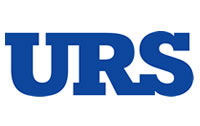By Tom Moriarty for Plant Services Magazine
Why giving your reports ownership over some decisions can benefit you both.
If you were to work for a person who made every decision and dictated how every task would be done, how would that make you feel? Would that inspire you to put forth your best effort? Would you go the extra mile in the face of challenges? Would you look for opportunities to improve how things are done? Or would you likely sit back and wait for instructions pertaining to even the smallest decisions?
For the person in charge, if you make every decision and dictate how every task will be done, what impact does that have on you? It certainly affects how you spend your time. If you’re spending time on things that others could and should be trusted with, chances are you’re not doing the things that you should be doing. And you’re probably not going home on time most days.
If you’re a directive leader and you’re content with that, you may not feel the need to change. However, if you’d like to reduce turnover and grievances, be promoted, or earn a raise, you should want to improve.
A leader shows value through productivity – getting the most out of available resources. That means increasing efficiency and effectiveness. How do you increase the efficiency and effectiveness of your team? You increase motivation and job satisfaction.
If you do research on motivation or job satisfaction, you’ll see that the reasons employees become unmotivated or dissatisfied are rarely a result of compensation alone. Obviously, compensation is very important, and if compensation is too low, it will become the driver. That’s especially true in 2018, with the unemployment rate around 3.8% in the United States. If people see a significantly better opportunity, they will jump ship.
But if compensation is within a reasonable range, the drivers of motivation and satisfaction have more to do with how individuals feel about the people they work for. People want to be treated with respect and trust. Bosses who make every decision and dictate how every task will be done make their reports feel like they’re being treated like children. The reports feel disrespected, not trusted, and stressed.
If you’re a boss and you recognize that you’ve been taking this approach, what can you do? The quickest and easiest thing to do is to learn to use two simple questions:
1. What do you think needs to be done?
2. How would you do it?
Think about what those questions will do for you and for a team member’s self-esteem and job satisfaction. For the leader, these two questions will give you insight into what each team member knows and about his or her judgment. That will help you assess the trust and confidence you should place in letting the team member have more responsibility. When you trust your team members with more responsibility, you gain time back to get your responsibilities done during the normal workday – maybe enough to actually go home on time.
If you’ve been a directive boss, you’ve already done some damage. People will be conditioned to expect that you’ll make every decision and supply directions as to how you want something done. By shifting to asking team members these two questions, you’ll give them the chance to show you that they know what to do and how to do it. This can be empowering and motivating, and they’ll feel more respected.
If you’re a team member who’s always being told what to do and how to do it, what can you do to improve how your boss treats you? Proactively use these two questions. Don’t simply dump a problem on your boss and wait to be told what to do. Good leaders find this frustrating.
Tell your boss what the situation is, and then tell him or her what needs to be done and how you’ll do it. As the boss develops trust in your judgment, he or she will concur with your approach. Eventually the boss will just ask to be notified about what you did. Be patient, though. Sometimes the boss may have information you don’t or a specific reason why things should be done differently.
Bosses and team members both can benefit from asking these two attitude-changing questions. If you take the initiative, you may see immediate changes, or changes may take a little time. It all depends on individuals involved and how much previous damage was done.
Contact Tom to ask about the two-day Productive Leadership Workshop; [email protected] or (321) 961-4306.


















